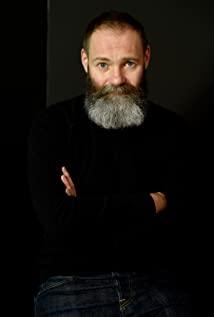is very normal that there are emotional active/escape parties and strong/vulnerable parties in social relations, not to mention the director of the film. The sensitive subject of immigrant workers was captured on the eve of Brexit, showing that the changes in the emotional status of employers/employees under socially strong/socially disadvantaged conditions are just right and right. The moment when the bar man was discriminated against by the local boss can also tell that the director is not. No idea. But the consequence of taking the male protagonist as the only perspective in the whole film is that the male two disappears completely, whether as the other party in the relationship between the two or as an immigrant worker in the social sense.
"Brokeback Mountain" is naturally incomparable. After watching this film What I think of is "Hawaii", which is also the employer/employer relationship. Let’s see how others deal with it:
Martin, who was given a perspective from the beginning of "Hawaii,", after meeting the male one, he proactively talks to the male one and finds a job narrative before handing it over Male protagonist; in this film, the protagonist teaches the second man not to play with his mobile phone. Since then, the second man’s leisure activity has become eating chocolate; and the counterpart in "Brokeback Mountain" is that Jack shaves his beard in the rearview mirror
and wears it in "Hawaii" The part of the other party’s clothes is when Martin steals his employer’s clothes while the young master is not looking in the mirror; in this film, the male protagonist is still wearing the male second’s clothes; the shirt of "Brokeback Mountain" we will not mention the
deadlock in "Hawaii" It is also Martin. The blow-eye scene beautifully expresses the subtle changes in the strong/weak position of the two sides in the emotional world; in this film, the two men are softened to the end, and even the man who stops in the air for a while is slaps instead of fists.
See, the former is what a normal relationship between two people should be. Interaction requires both parties to work together to have a chemical reaction. Even if one party is the main point of view, the other's emotional description is also indispensable. The protagonist groups of these two films are really very similar. The socially disadvantaged but emotionally active employees, the strong socially but constantly evasive employers, regard the relationship between the two parties from social projection to emotional projection as a transition. conflict. But "Hawaii" is so strong that Young Master Mensao didn't dare to take the obvious step, so Martin's initiative to cross the boundary seemed natural, and the temptation of both sides in the process was also particularly arresting; we can only see the fact from beginning to end of the film. The male protagonist who has not received too much external pressure is endlessly awkward. Whether it is the external pressure caused by the discriminated immigration background or the delicate and considerate male protagonist in the relationship between the two people, it can be said There are too many, but the director does not give a chance at all. I wish I could have more of this film. The second man eats chocolate and makes cheese. I draw a picture with sugar on the table and stretch out a finger to touch the little bridge of the man. However, the director would rather take the male protagonist’s complete appointment process twice. He refuses to give the narrative evenly to the second man. It is even more unrealistic to expect changes in the status of both employers/employees and exchanges with the surrounding community as the relationship progresses. A scene in the bar turned upside down as the core part of the conflict. The shortcomings were extra obvious. Originally, it was interesting for the boss to cast malicious eyes on the two people together. I think the two people are finally going to do something together. , As a result, the two sides talked a few words and couldn't get along. The first man immediately turned on the scum mode to make an appointment, leaving the second man to fight with the boss outside. This approach does not rely on the interaction of the male one and the male two at the critical moments of the plot, and only relies on outsiders to promote only the perspective of the male one. Whether it is the plot itself or the mood of the male second from the perspective of the male second, it can only be said to be heart. Stuffed
This sense of despair that is worthless for the male second finally reached its peak at the end of the film. My face was as black as the second man when he started to apologize. “I’m under a lot of pressure.” “I really miss you.” “I can’t live without you.” It’s all false. Yes, are the three words'I am sorry' so hard to say?? However, the male protagonist just repeats "I really want to be with you" three or four times like a primary school student, even regretting it or I'd rather not show the determination to change, so I trouble you not to apologize and say, "You can make as much cheese as you want." It's okay to give face to the male second. And the old and unhappy male second also casually gave a little face , Seeing the male protagonist crying, I immediately agreed to reunite... I can only say that the male protagonist probably saved the earth in his life.
In general, the director took the natural advantage of the foreign immigrant workers and the appearance of the male second. Violent and violent, it is necessary to film the decadent capitalist youths, self-pity and abuse of other people’s feelings. The locals may also gain a sense of substitution. As a non-local audience, I want to substitute the perspective of the male second, but I’m sorry I can’t do it (Male Er Mingming) It looks better than the male protagonist, and the inverted post can’t explain it.) Even if it is to improve the character of the male one, giving the male two a more narrative perspective is much more convincing than allowing the male protagonist to introspect for no reason.
PS first praise the next film The farming scene here is very real, but two big men who do rough jobs eat cup noodles instead of canned beans at night, are they full? I eat these things for supper...
View more about God's Own Country reviews











